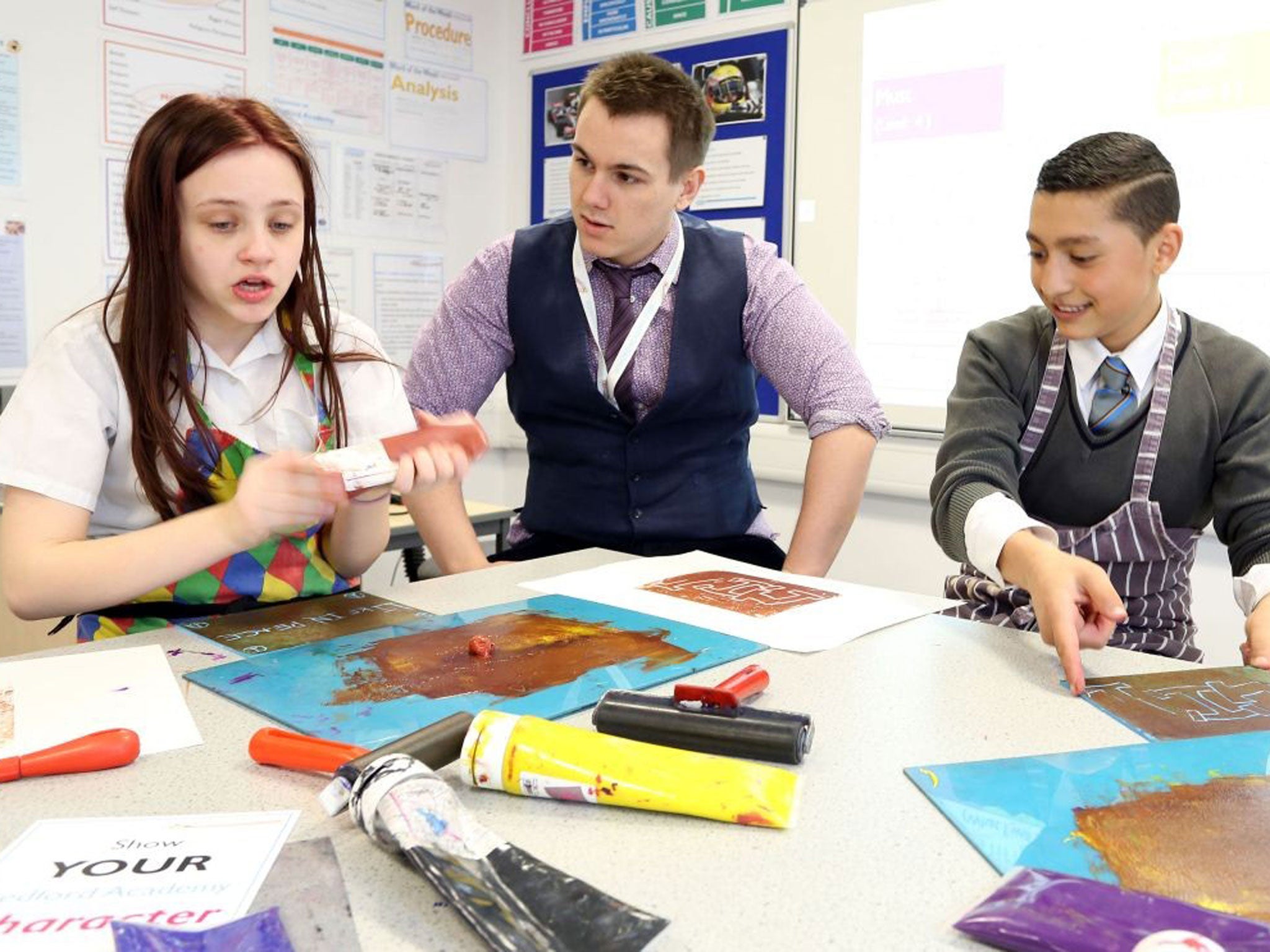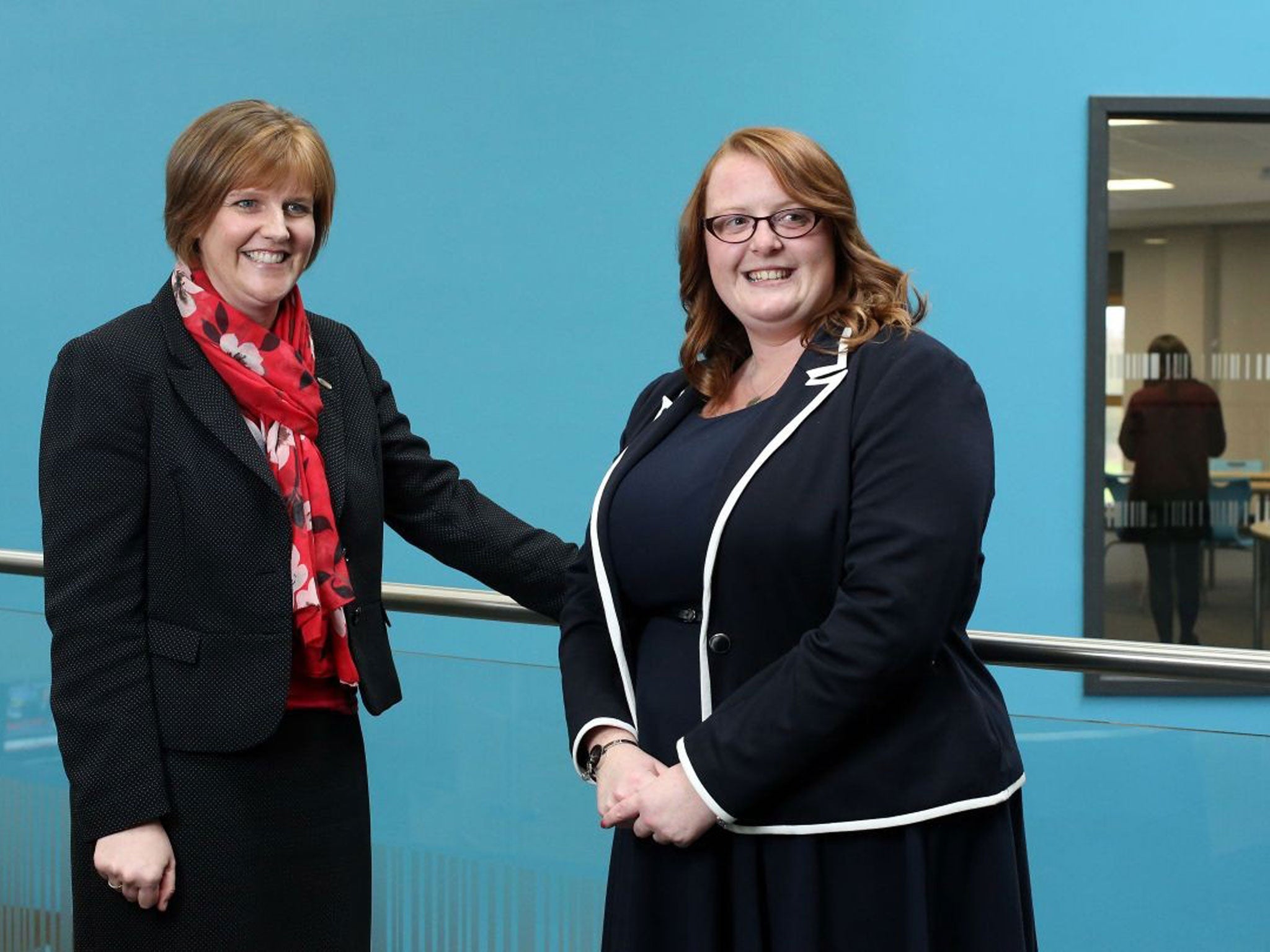The 3 Rs - ready, respectful and resilient: A school has put pupils' character formation before exam results

For 14-year-old Laurentiu Filip, it has taught him how to channel his curiosity. He is brimming with enthusiasm as he tries to make an etching in his art lesson. Jasmin Smith, aged 13, thinks it has given her the self-control to persevere with tasks she has been set at school. Welcome to the Bedford Academy, which has become the UK pioneer for a learning programme from the United States aimed at building character among pupils.
The scheme, which has been operating in the Kipp (Knowledge is Power Programme) charter schools in the US – on which Michael Gove, the Secretary of State for Education, partly modelled his free school programme – eschews the "exams factory" approach in an attempt to give pupils the character they need to battle against the odds academically in disadvantaged areas.
In the US, educators have drawn up a list of 24 characteristics which schools should develop in their pupils. Bedford Academy has whittled the list down to a "magnificent seven" – grit, zest, optimism, social intelligence, gratitude, curiosity and self-control. "We're looking to develop students' characters," said Emma Orr, possibly the first deputy headteacher in the country to be given specific responsibility for this list in her job description. "These are seven attributes that are going to make students successful."
Each pupil is given a passport that their teachers mark if the pupil shows they have used any of the seven attributes to good effect in lessons. They can work their way into getting bronze, silver, gold or platinum awards in each area, thereby earning a certificate that can be presented to potential employees.

A student showing grit, for instance, would have finished a task by persisting in it and showing resilience when things went wrong. A mark for social intelligence would be awarded for showing an awareness of the feelings and motives of other pupils, or an ability to reason with classmates.
The scheme taps into the drive – supported by the Confederation of British Industry and Labour's Shadow Education Secretary, Tristram Hunt – to create more "rounded and grounded" young people capable of taking their place in the workforce of the 21st century.
It has already won praise from David Cameron's former policy adviser James O'Shaughnessy, who said of it: "Kipp schools now provide students with character report cards as well as reporting on their academic progress. There is nothing woolly about the education delivered in these schools: it is rigorous schooling informed by hard-won experience about what young people really need to get on in life."
He cites Martin Luther King as inspiration for the programme, quoting the civil rights leader's comment: "Intelligence plus character: that is the goal of true education."
Claire Smith, the academy's principal, believes the approach is central to developing aspirations in a school which serves one of the most disadvantaged areas of the country.

The school is one of the old-style academies set up in a deprived urban area to replace a failing secondary school. It is sponsored by the Harpur Trust, a local charity, and by Bedford College. It will have 1,400 students when it is fully operational.
Next September it will take in 11-year-olds for the first time (Bedford has a middle school system, in which students transfer to upper schools at 13). Twenty-six languages are spoken in the homes of its pupils, many of whom have Bangladeshi or Pakistani backgrounds or have come from eastern Europe.
"[The scheme] helps make pupils more successful in life and helps them academically," said Ms Orr. "Developing character should be a big part of their learning. It is a simple enough concept," added Mrs Smith.
The early signs are that the pupils have become more attentive since the programme was introduced. Ofsted, the education standards watchdog, has already praised the school for adopting a wider approach to learning. "The academy's promotion of students' personal development, including their spiritual, moral, social and cultural development, is excellent," it said.
Jake King, an art teacher at the school, said the approach had not given teachers extra work. "You soon get used to what you're looking for," he said. "It doesn't add to my teaching workload. It is thinking about how you can build their skills."
Mrs Smith added: "They are really zesty children here. They have a real spark for life. I think we've got them to a place where they believe we want to do the best for them."
Emma Orr cited the example of one pupil who, asked to assess how well they were doing, said: "I'm really good with my self-control but I need to work on my grit and optimism." That, certainly, is a different way of summing up a pupil's achievement than measuring their progress in the three Rs.
Join our commenting forum
Join thought-provoking conversations, follow other Independent readers and see their replies
Comments
Bookmark popover
Removed from bookmarks